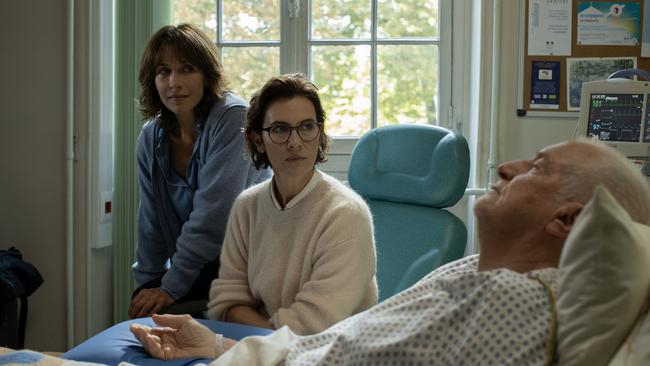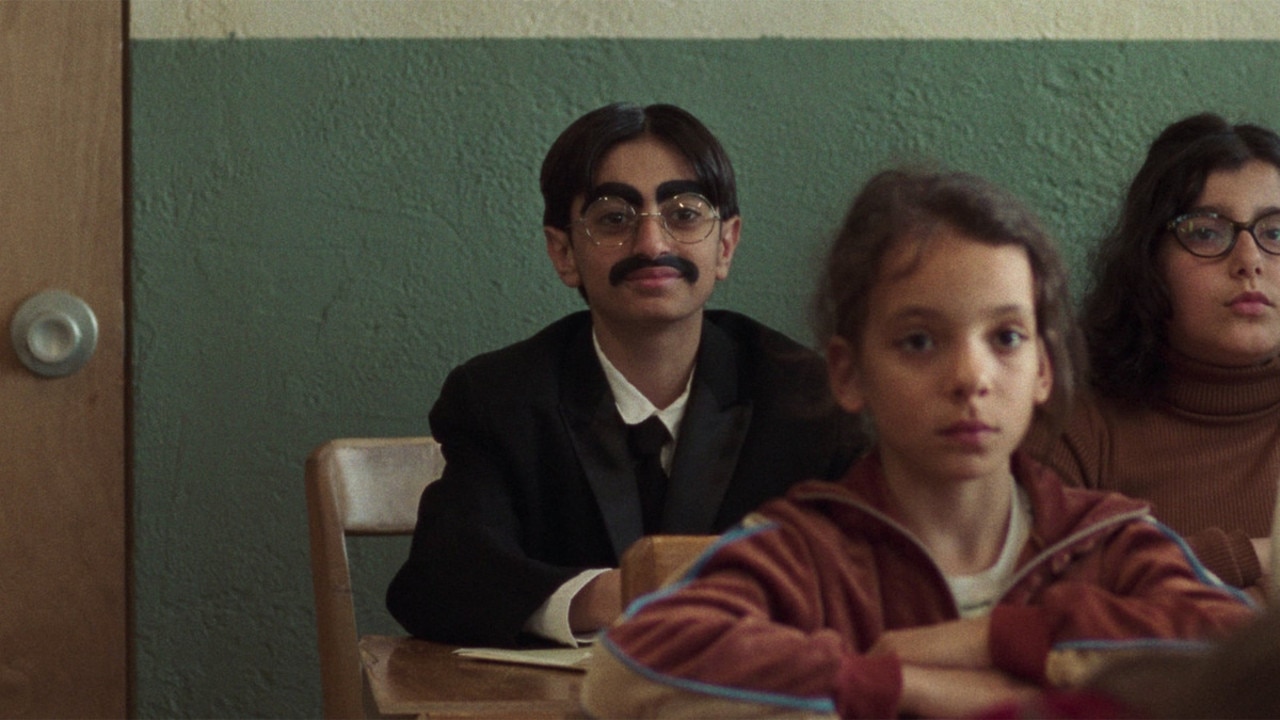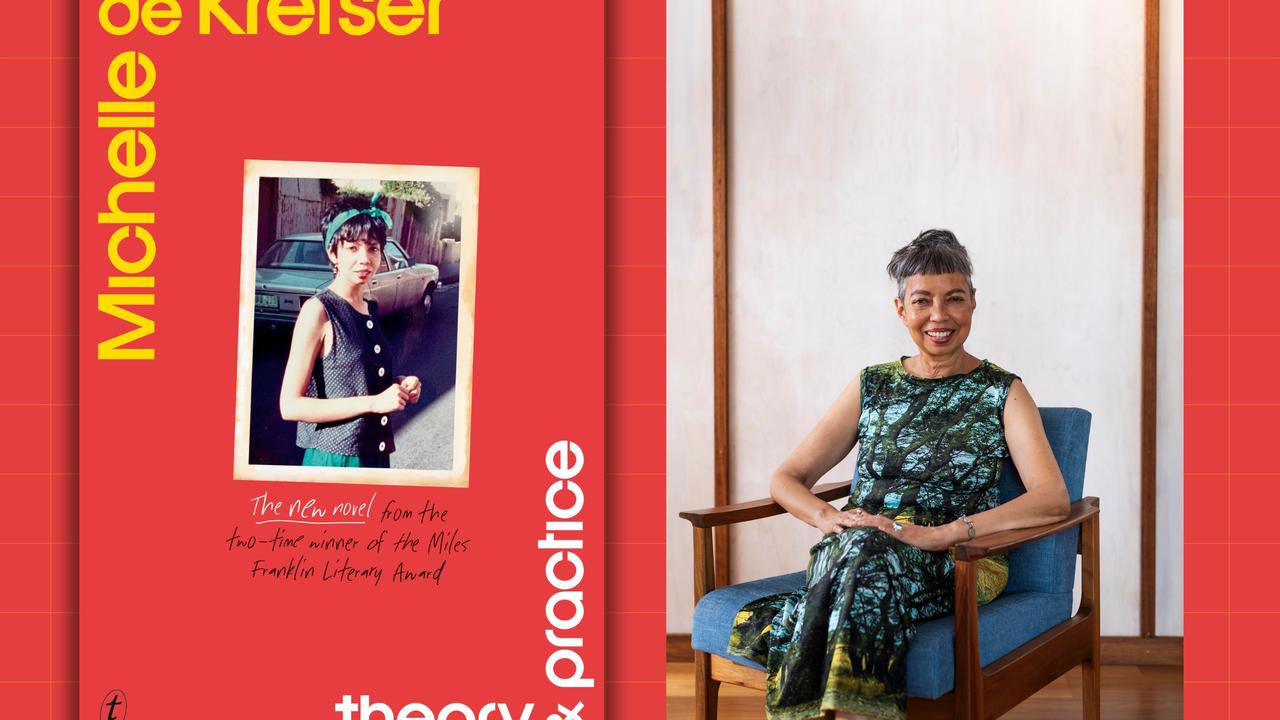Everything Went Fine, wonderful actors and a heartbreaking dilemma
After Andre suffers a stroke his quality of life is permanently compromised. He makes a plea to is daughter to help him die.

Everything Went fine (Tout s’est bien passe) (MA15+)
In cinemas from Thursday
★★★★
Writer-director Francois Ozon’s Everything Went Fine tackles a subject that is as controversial in France as it is here in Australia: euthanasia. Quietly passionate and unsentimental, the film explores the terrible dilemma of a woman when her father begs her to end his life.
Andre Bernheim (Andre Dussollier), an octogenarian, has been accustomed to having his own way all his life. His stubbornness and intractability are probably the reasons he’s estranged from Claude (Charlotte Rampling), his sculptress wife, and from his angry and bitter son, Gerard (Gregory Gadebois), but he remains close to his daughters, Emmanuele (Sophie Marceau) and Pascale (Geraldine Pailhas).
When he suffers a severe stroke and is shunted from one hospital bed to another, it becomes clear that his quality of life is permanently compromised, which is when he makes his plea to Emmanuele – it’s almost a command – to help him die.
Under French law euthanasia carries a heavy penalty, so Emmanuele demurs in the hope that Andre will change his mind. But he’s determined and the daughters hate to see the once active man reduced to helplessness. France shares a border with Switzerland, a country where the laws on assisted dying are more relaxed, so Emmanuele is able to make contact with a clinic in Berne where assisted dying is an option, and to its director (Hanna Schygulla).
This outline probably makes the film sound very downbeat, but Ozon, adapting a memoir by Emmanuele Bernheim about her father’s death, is never heavy handed. The focus is on the two daughters as they debate and negotiate with Andre, and some of these discussions are surprisingly humorous.
The actors are quite wonderful, and Ozon’s simple, straightforward handling of the potentially explosive subject is measured, calm and sympathetic without being unduly polemical.
Some brief flashbacks to Emmanuele’s childhood reveal that Andre was not the easiest of dads which makes her devotion to him in his time of need and her sincere attempts to fulfil his wishes even more courageous.
-
How to Please a Woman (M)
In cinemas
★★★½
“Women are quite tricky to please”, asserts one of the characters in this mildly saucy movie which unfolds among a group of middle-aged, middle-class women in Perth.
To please them, we learn, there are two essential requirements. One is to provide fulfilling sex. The other is to clean their houses. Men who can do both are in high demand.
It all starts when Gina Henderson (Sally Phillips) celebrates a significant birthday. Her husband, Adrian (Cameron Daddo) is a busy lawyer and neglects her, so she spends a lot of time with her girlfriends who, for a birthday gift, make her a present of Tom (Alexander England), a handsome, strapping young man who turns up at her door to tell her she can do anything she wants with him, and get him to do anything, for the next two hours.
Taken aback, Gina’s first thought is to have this attractive stranger clean the house for her; though clearly not expecting this kind of chore, Tom complies. And Gina gets an idea.
The idea bears fruit when she encounters Steve (Erik Thomson), owner of a small, struggling removalist company. He needs a new direction and Gina is happy to supply it.
Soon she and Steve are running a different kind of company; Tom is on the payroll, along with a couple of other handsome and willing lads, and the local women are offered sex and cleaning – either or both. Business booms.
Writer-director Renee Webster’s premise is certainly original and mildly provocative.
How to Please a Woman is briskly paced and, though it becomes a little repetitive, amusing for the most part.
-
The Innocents (De Uskyldige) (MA15+)
In cinemas
★★★½
The Innocents, a deeply mysterious and unsettling Norwegian film, takes plenty of risks – featuring an autistic child at the centre of a psychic thriller being just one of them.
The setting is a new housing estate on the fringe of a city; many of the children who live here are multicultural or have special needs, like Anna (Alva Brynsmo Ramstad), who has just moved in to the estate with her parents (Ellen Dorrit Petersen, Morten Svarteit) and little sister, nine-year-old Ida (Rakel Lenora Flottum).
When she reached the age of three, Anna stopped talking; now she seems only able to groan painfully. Ida cares for her older sister when her parents are otherwise occupied, which is most of the time.
Anna and Ida soon meet other children from a variety of ethnic backgrounds, and become particularly friendly with Ben (Sam Ashraf), who seems to have telepathic powers; he can make tree branches crack, lake water rise and even will a saucepan of boiling water to scald his mother (he’s a cruel kid). Ben is not the only child possessed with strange powers: there’s also Aisha (Mina Yasmin Bremseth Asheim) who is able to listen to the thoughts of the children around her.
These peculiar events, taking place as they do against the mundane backdrops of a children’s playground and a dreary apartment block, are weirdly unsettling.
The cool, precise direction by Eskil Vogt, who also scripted, and the superb performances of all the children go a long way towards making this challenging film strangely mesmerising – but animal lovers should be warned that there is a scene involving a cat that may cause distress.
-
Pompo the Cinephile (Eiga daisuki Pompo-san) (PG)
In cinemas
★★★
This Japanese anime which, like almost every animated film emanating from Japan, is beautifully made, is a rather odd affair. The title character in Pompo the Cinephile is a little girl with long, blonde hair tied in ribbons; she isn’t really a cinephile – that description more appropriately belongs to another character – but she is an executive in the Peterzen Film Studio in Nyallywood, a movie town obviously based on Hollywood.
The real cinephile here is Gene Fini, a nerdy would-be director who is given his chance when assigned to cut a trailer for a new Peterzen production titled Marine. The film’s director is delighted with Gene’s work and he’s given the opportunity to direct a feature about an orchestra conductor starring a famous actor, Martin Braddock, who is cast opposite a newcomer, Natalie. Filming takes place in Switzerland and Gene returns to Nyallywood with 72 hours of footage he has to cut to a 90-minute feature – with no help from a professional editor, curiously enough.
Takayuki Hirao’s film is both a satire on and an affectionate tribute to the movie industry. I’m not sure that it will have much appeal for young children, but the high standard of animation and the deft rendition of a story of ambition thwarted by many setbacks makes for an enjoyable 90 minutes for mature audiences.
I puzzled about Pompo. Her character seems out of place and I wondered if she was featured in an ongoing series (Pompo the Plastic Surgeon, Pompo the Explorer perhaps) but this seems not to be the case and her prominent position in the film’s title is a bit of a mystery.





To join the conversation, please log in. Don't have an account? Register
Join the conversation, you are commenting as Logout